Ministry of Science & Technology
Cultivating the Future
Innovative Biotech Solutions for Farming, Livestock, and Aquaculture
प्रविष्टि तिथि:
24 FEB 2025 5:51PM by PIB Delhi
Biotechnology has emerged as a transformative force in agriculture, aquaculture, and animal sciences, driving innovation in crop improvement, disease management, and sustainable farming practices. Recent advancements in genome editing, molecular breeding, and biocontrol solutions are enhancing productivity and resilience in these sectors positioning India as a global force!
Power of Biotechnology in Agriculture
Agricultural biotechnology is breaking new ground with advanced research in genomics, proteomics, transgenics, and gene editing. The Department of Biotechnology’s Agriculture Biotechnology programme supports innovative biotechnological research for achieving sustainable agriculture by leveraging the latest advances in technologies. The main achievements include:
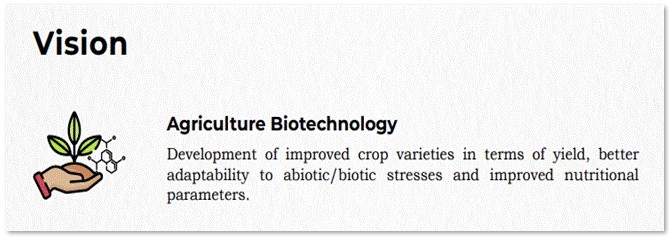
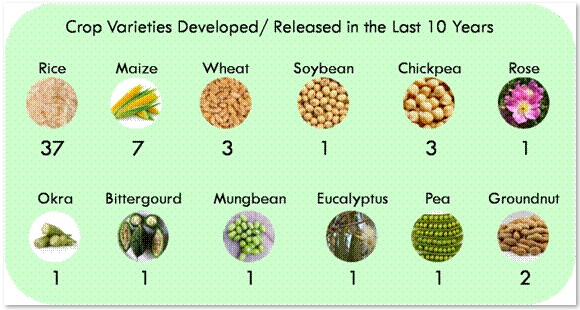
Climate-Smart Crops: A New Superior Climate Smart Drought Tolerant High-Yielding Chickpea Variety “SAATVIK (NC 9)” with enhanced yield under drought stress is notified recently. SAATVIK (NC9) is now approved by the Central Sub-committee on Crop Standards.
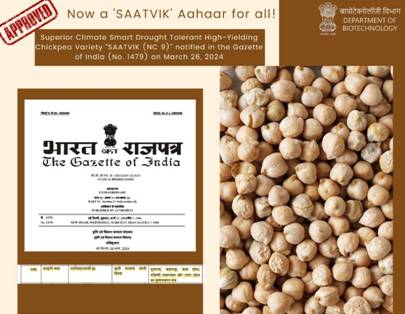
Genome-Edited Crops: Genome editing was employed to generate loss of function mutations in several rice genes that negatively regulate crop productivity. These lines have been developed in the genetic background of the popular Indian rice variety, MTU-1010, and exhibit higher yield (in greenhouse conditions) over the parent line. In particular, similarly, the DEP1 (DENSE ERECT PANICLE; a G protein subunit) genome-edited rice lines produced larger spikes with increased grain numbers and yield.
Genotyping Arrays: The first-ever 90K Pan-genome SNP genotyping array IndRA developed for rice has been commercialized for public use. Similarly, the first-ever 90K Pan-genome SNP genotyping array IndCA for chickpea has been developed. The arrays will help DNA fingerprinting, variety identification, testing genetic purity of rice and chickpea varieties.

Amaranth Genetic Resources: The department of biotechnology has developed an Amaranth Genomic Resource Database, Near Infrared Spectroscopy (NIRS) techniques for screening nutritional qualities of amaranth grain, and a 64K SNP chip. Amaranth accessions screened using the above resources have been shown to counteract high fat diet induced obesity. This is a significant enabler for rapid screening of amaranth accessions for cultivation as well as varietal development.
Fungal Biocontrol: A stable fungal enzyme nano-formulation from Myrothecium verrucaria has been developed for eco-friendly biocontrol of powdery mildew in tomato and grape.
Kisan-Kavach: An anti-pesticide suit designed to combat the pervasive threat of pesticide-induced toxicity in agricultural settings. Developed with a deep understanding of the challenges faced by farmers, Kisan Kavach stands as a beacon of safety and innovation in the field.
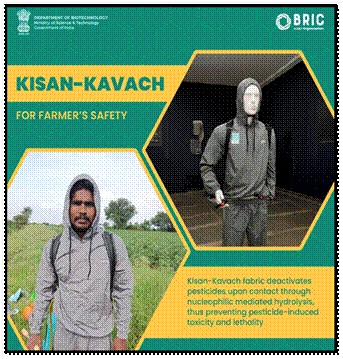
Revolutionizing Animal Biotechnology
India is the largest animal husbandry sector in the world with largest livestock population to supports the livelihoods of more than two-thirds of the rural population, mainly small and marginal farmers. Innovations in animal biotechnology are driving breakthroughs in veterinary medicine and livestock management like:

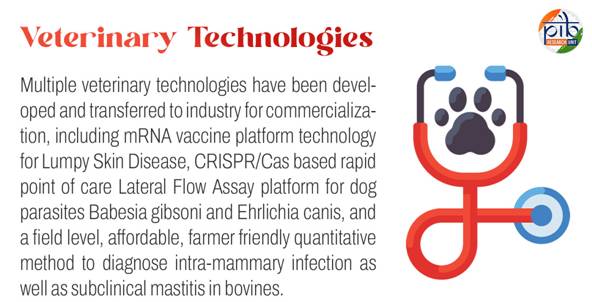
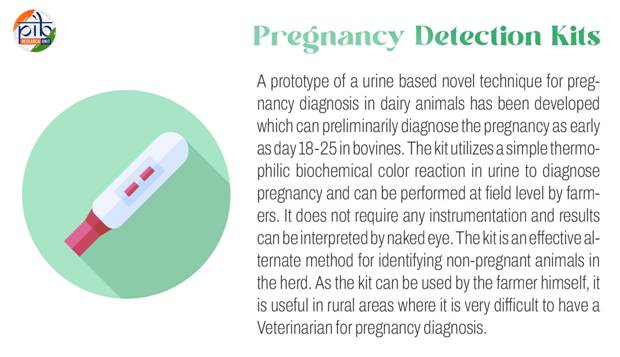
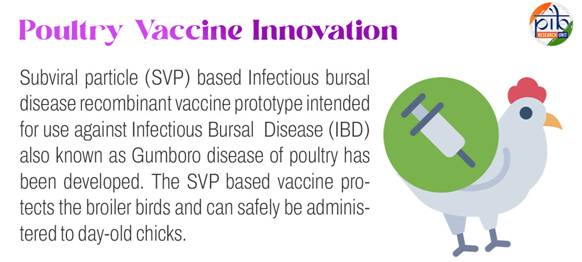
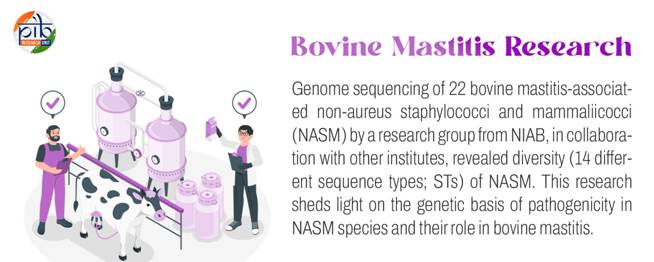
Aquaculture and Marine Biotechnology
The Aquaculture and Marine Biotechnology program has been implemented with the goal of enhancing both aquaculture production and productivity, while also harnessing marine resources for valuable products and processes. This program plays a vital role in the agricultural economy by ensuring food production for nutritional security. The Department has undertaken various initiatives to benefit the aquatic and marine sectors like.
Shrimp Diet: Fish meal is the important ingredient in shrimp feeds. Due to its high cost and sustainability issues, replacement of fish meal is an important area of research in aquaculture nutrition. Scientists working in this area at ICAR-Central Institute of Brackish water Aquaculture, Chennai have shown in their studies that yeast fermentation of soybean meal significantly improves inclusion level in shrimp diet by increasing the nutrient digestibility and growth. The growth trial results indicated that soybean meal can be included up to 35% in the grow-out feed of P. vannamei and fermentation improved the growth by approx. 8.5%
CIFA-Brood-Vac: A novel vaccine has been developed to prevent mortality in fish spawn, securing aquaculture stock health. A user-friendly software, Interactive Fish Feed Designer (IFFD) version 2, has been developed for the formulation of cost-effective fish feed with non-conventional ingredients.
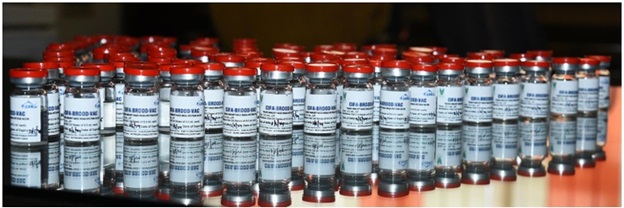
Conclusion
The integration of biotechnology into agriculture, aquaculture, and animal sciences is fostering sustainable food production, disease resistance, and enhanced productivity. These innovations, backed by research and commercialization efforts, are paving the way for a resilient and efficient agricultural ecosystem. As biotechnology continues to evolve, its role in ensuring food security and environmental sustainability will only strengthen in the years to come.
References
https://dbtindia.gov.in/sites/default/files/uploadfiles/NBM%20WEBSITE-Dr.%20Madhavi_FV.pdf
https://pib.gov.in/PressReleasePage.aspx?PRID=2081506
https://dbtindia.gov.in/publications
See in PDF
***
Santosh Kumar/Sheetal Angral/ Madiha Iqbal
(रिलीज़ आईडी: 2105824)
आगंतुक पटल : 4561